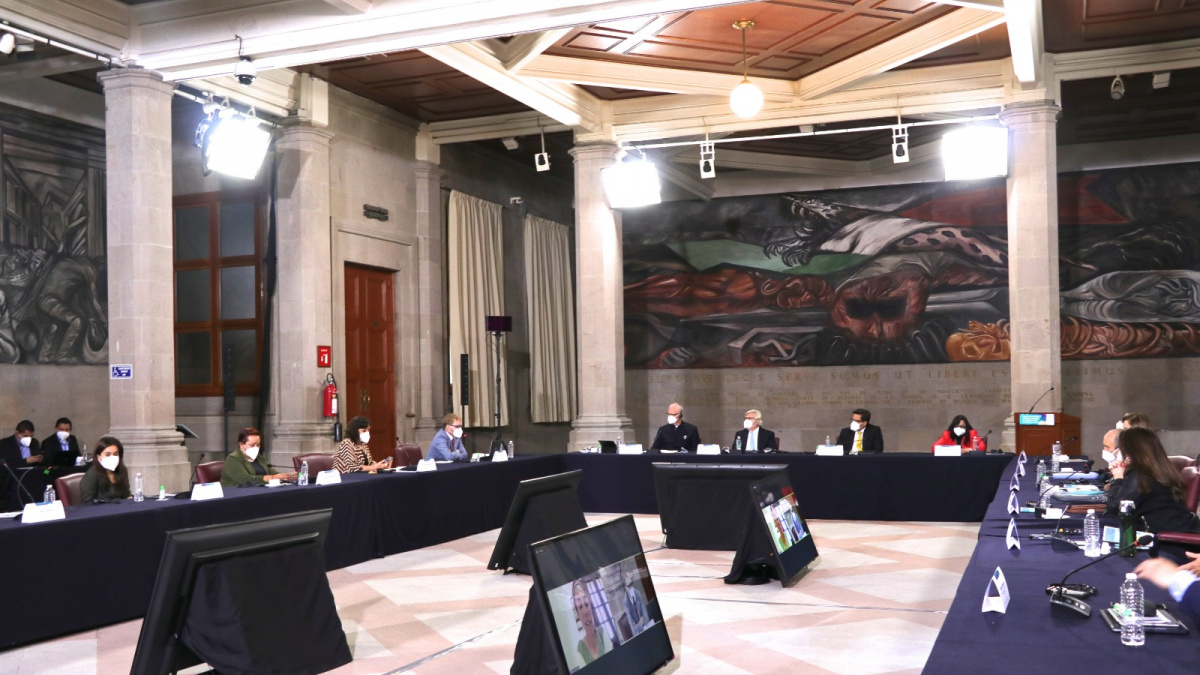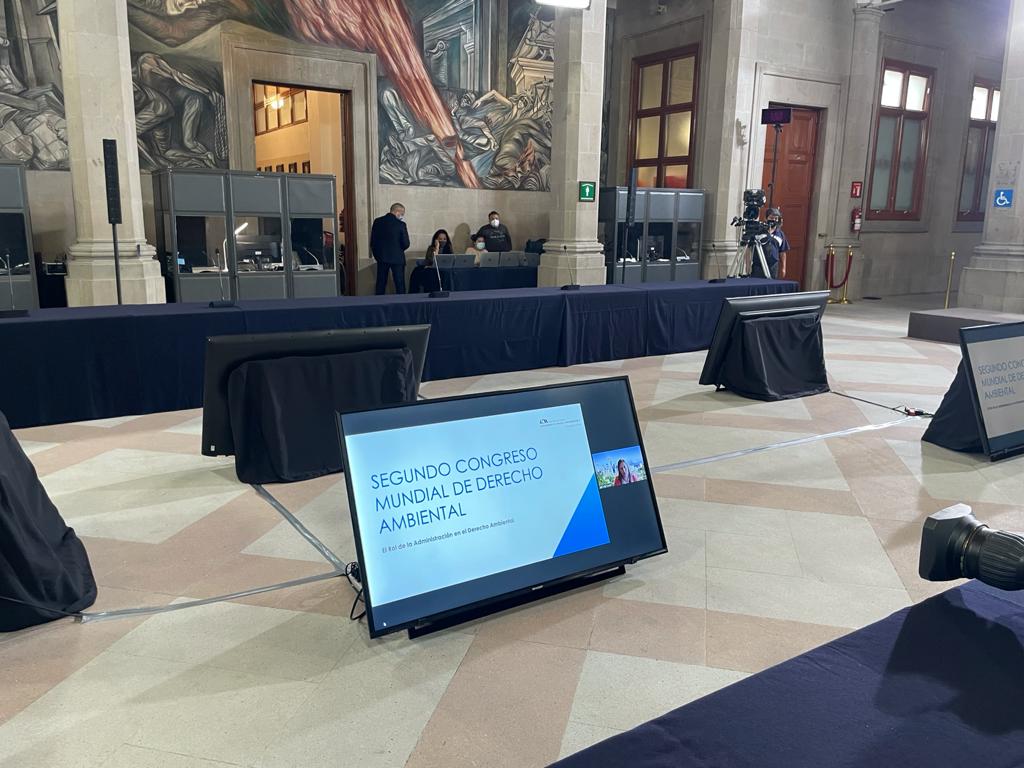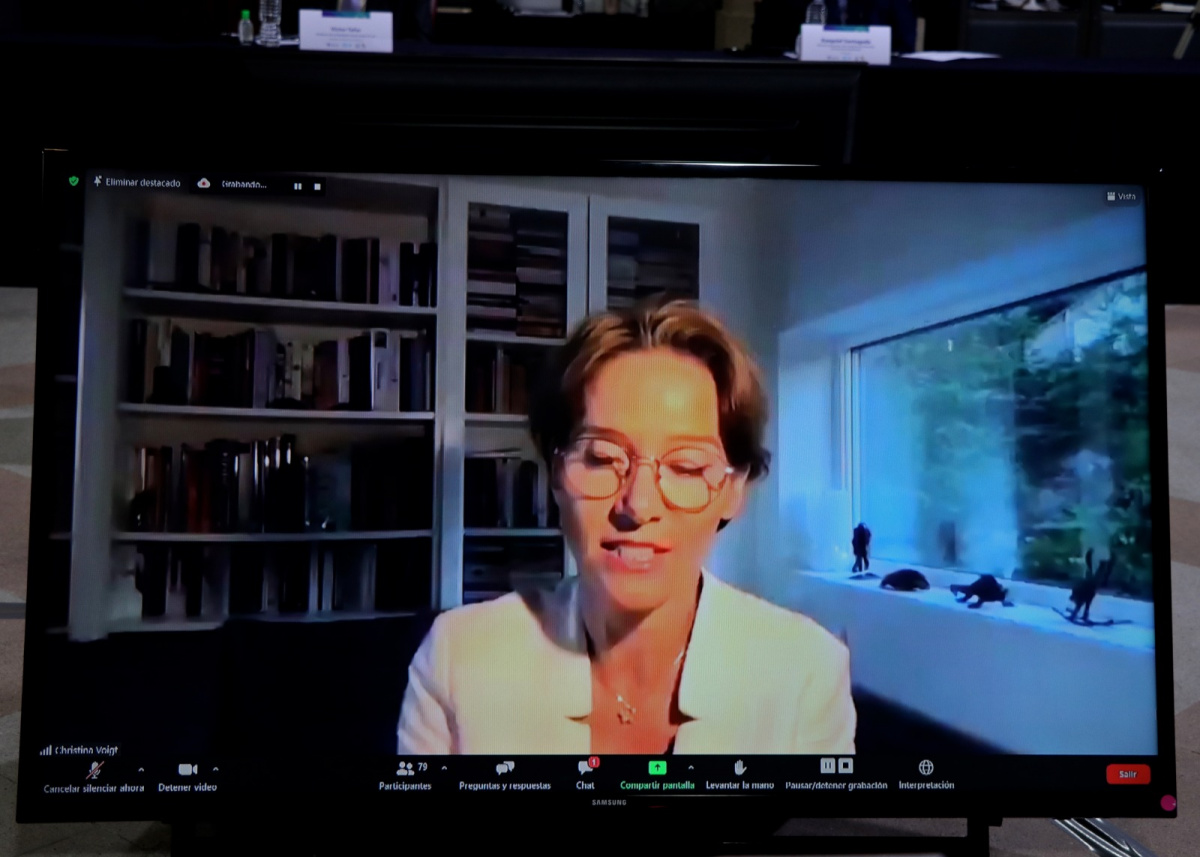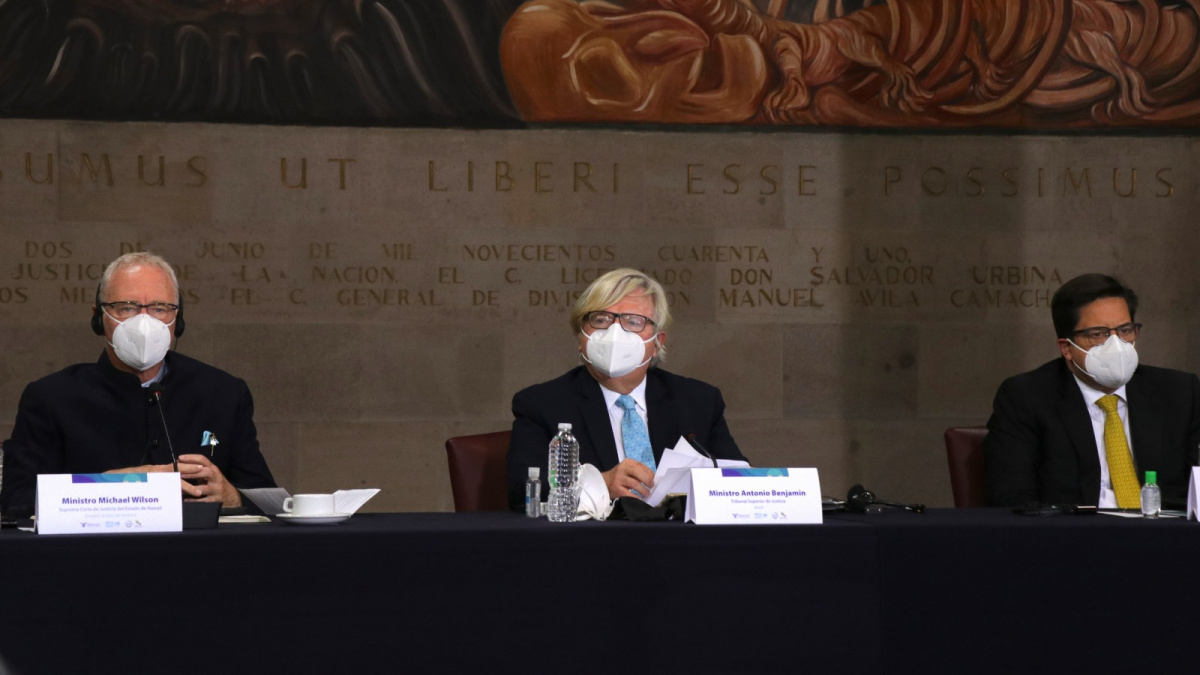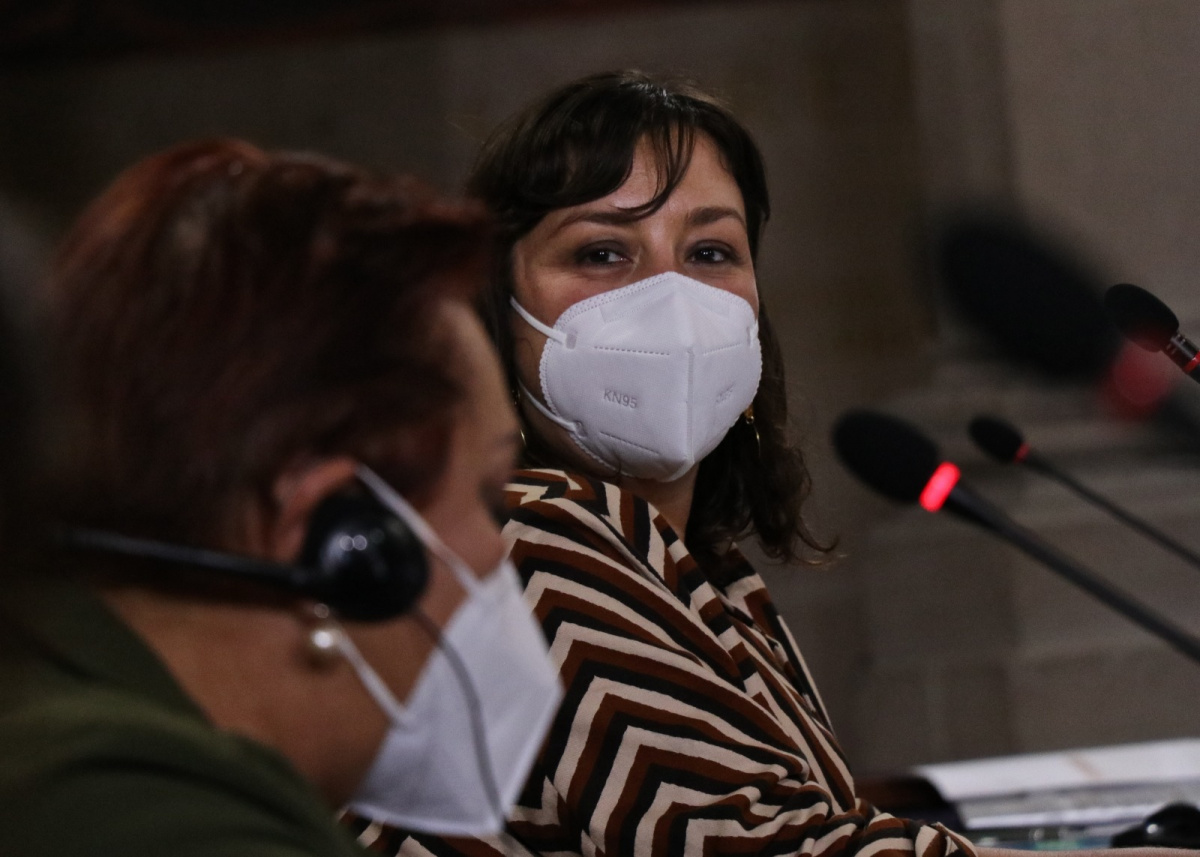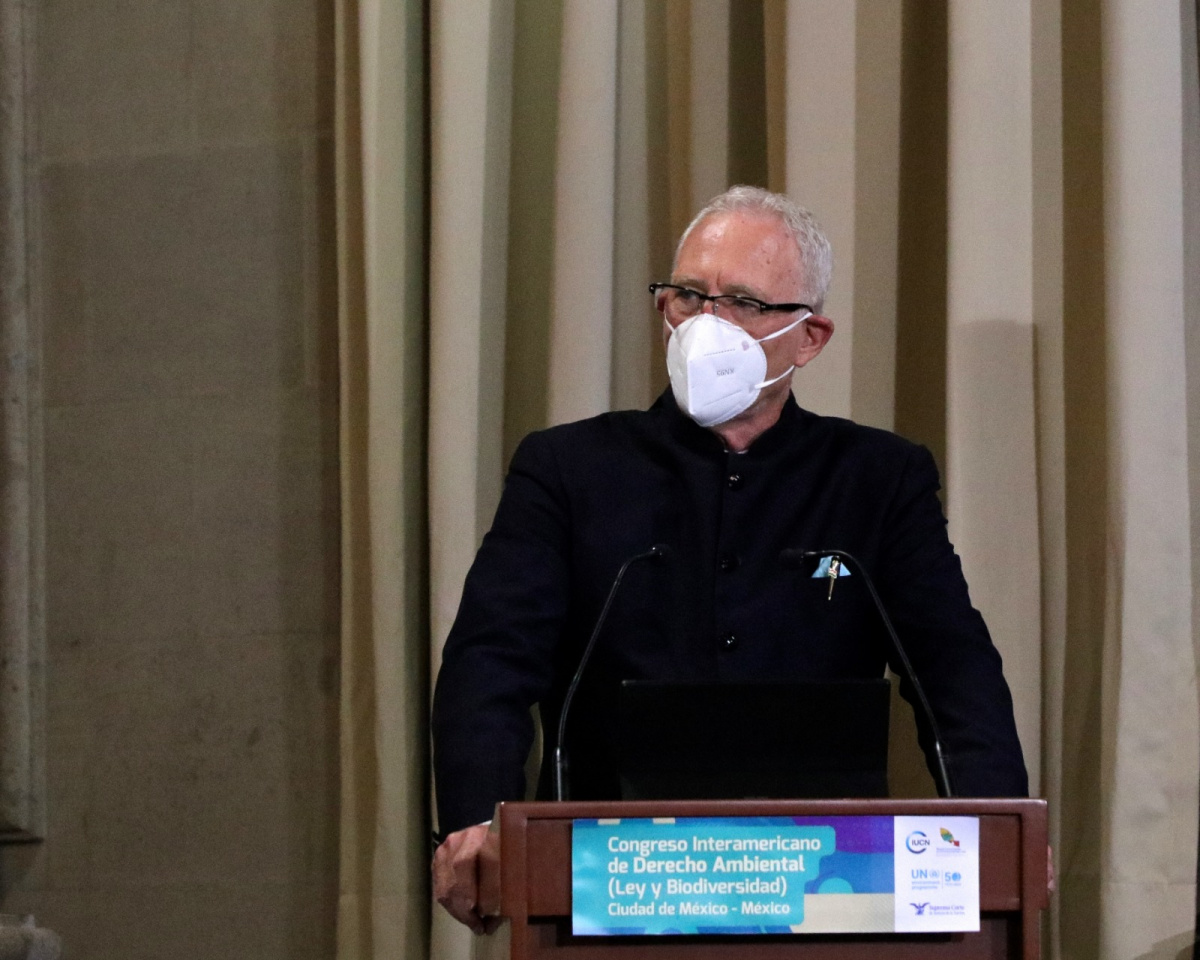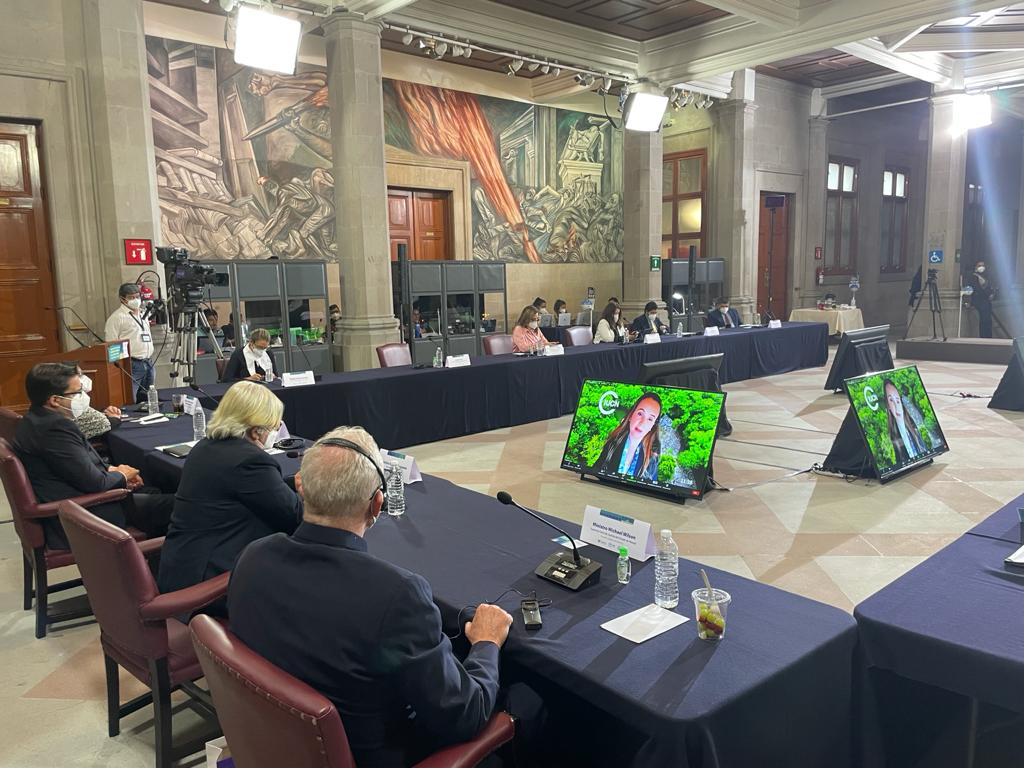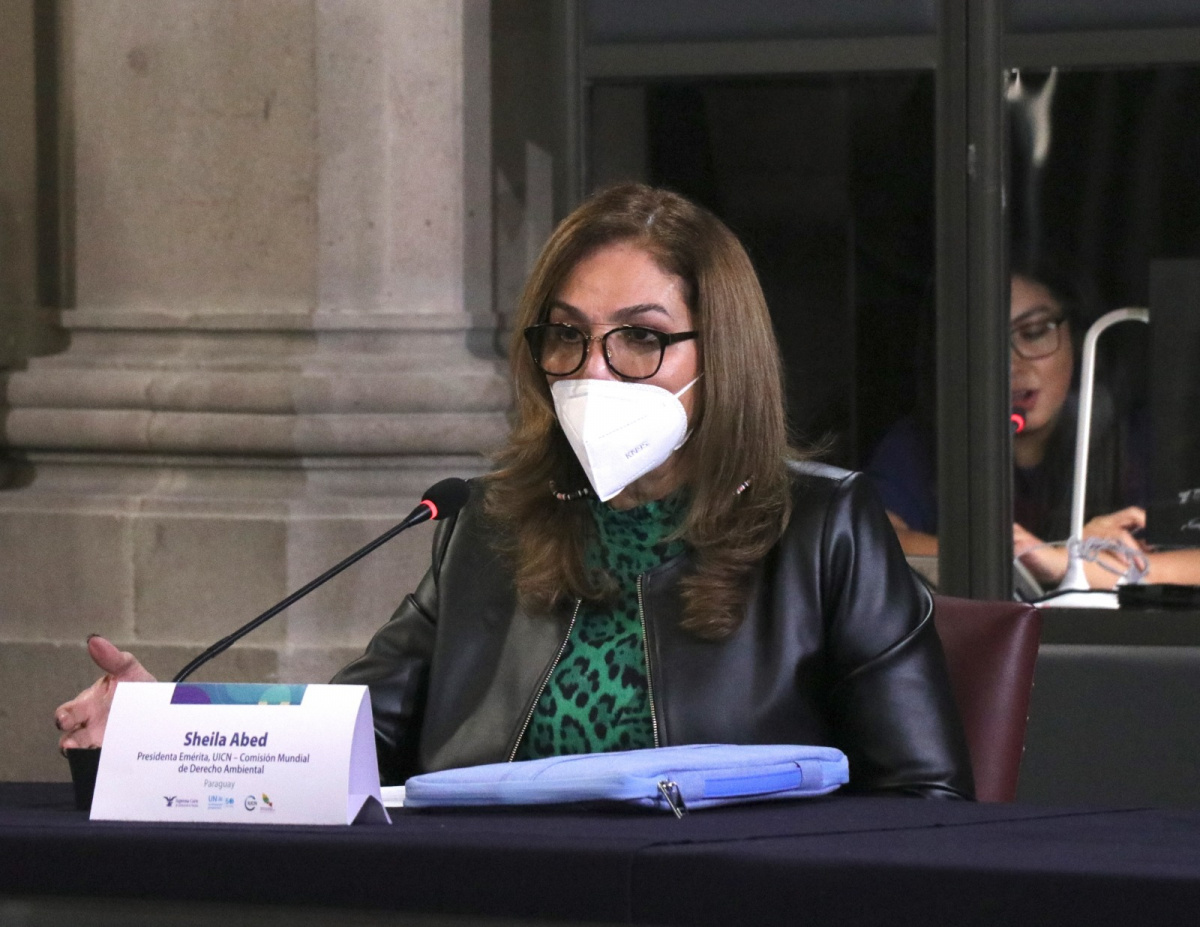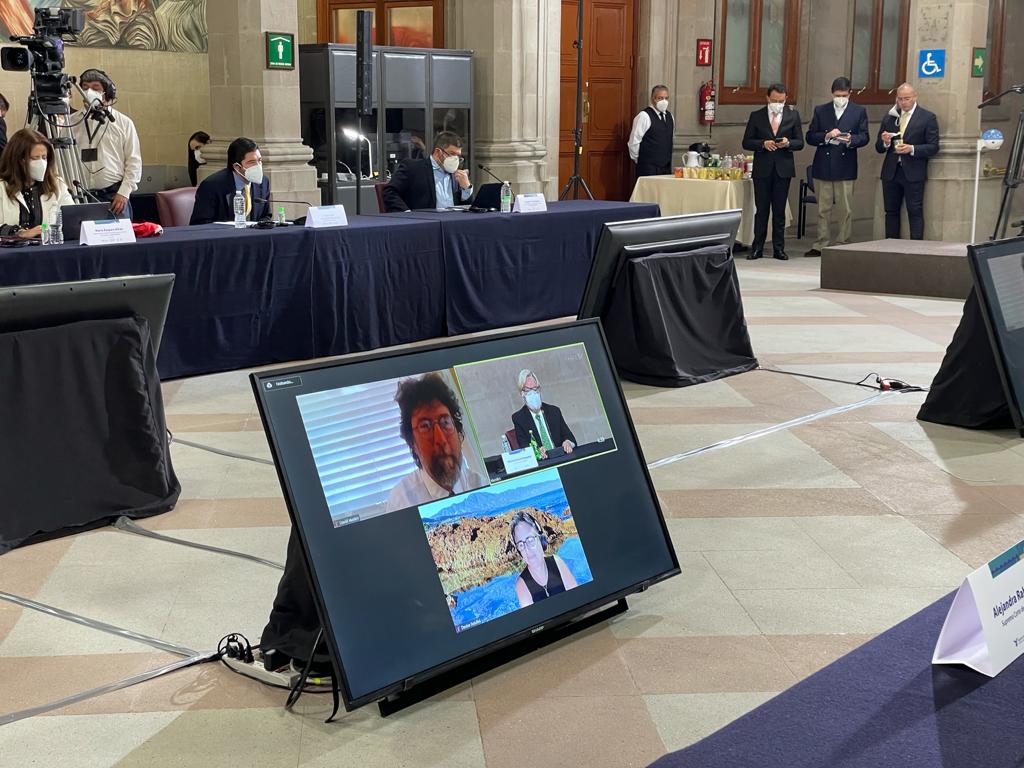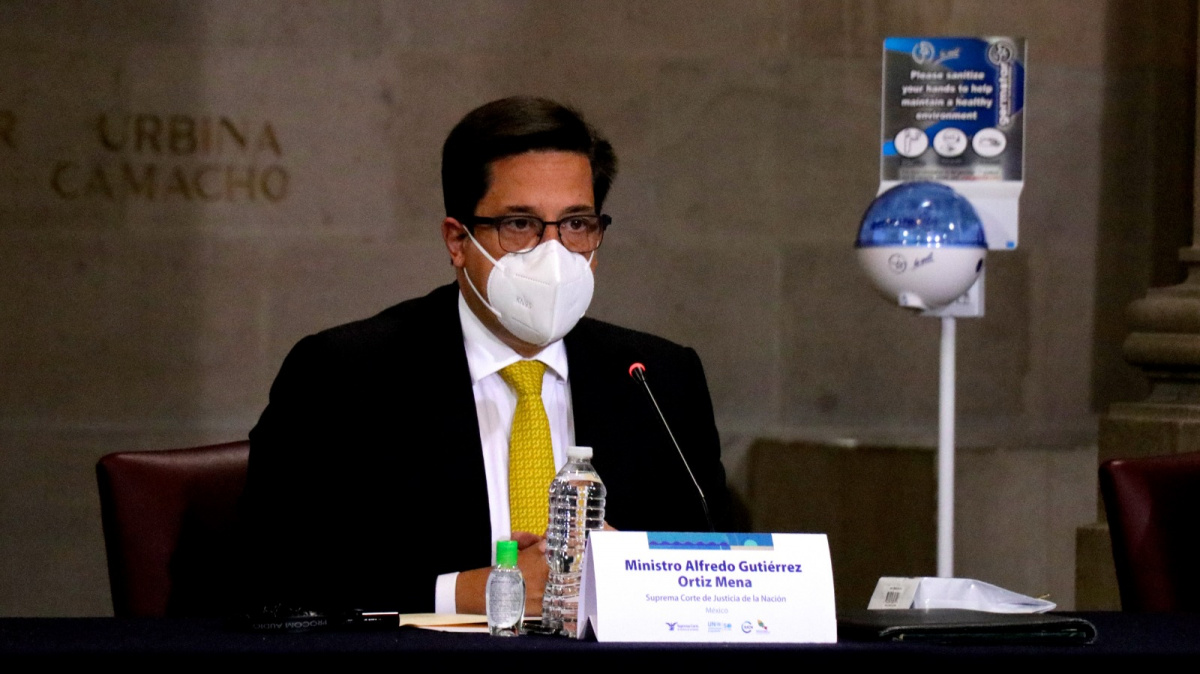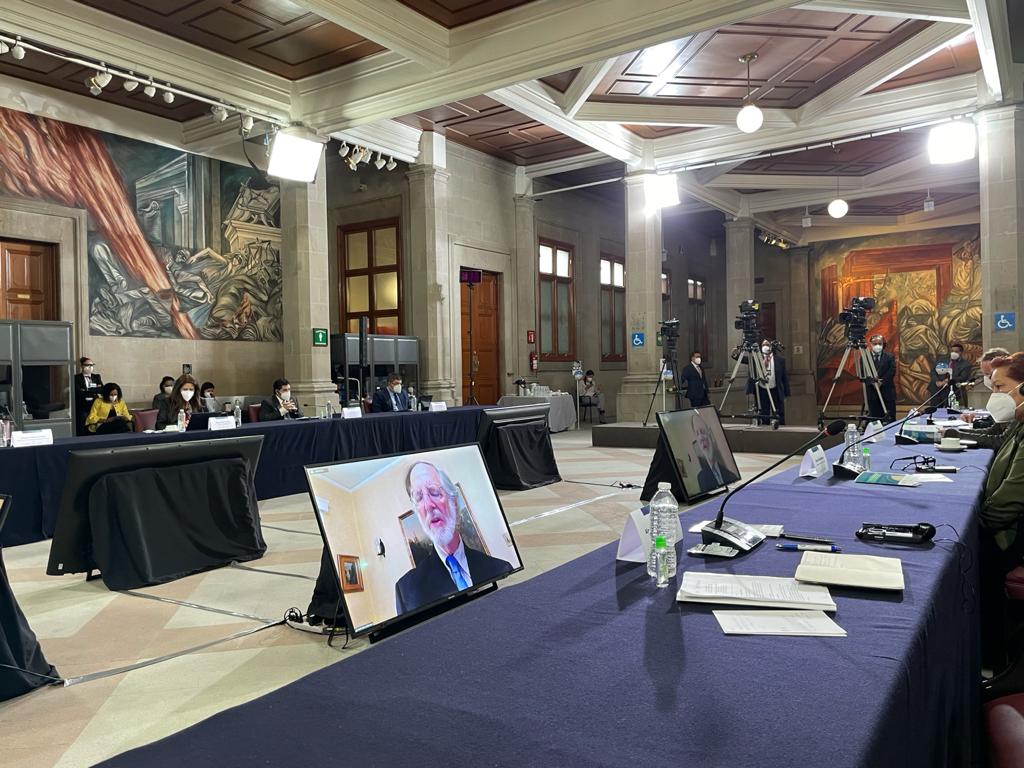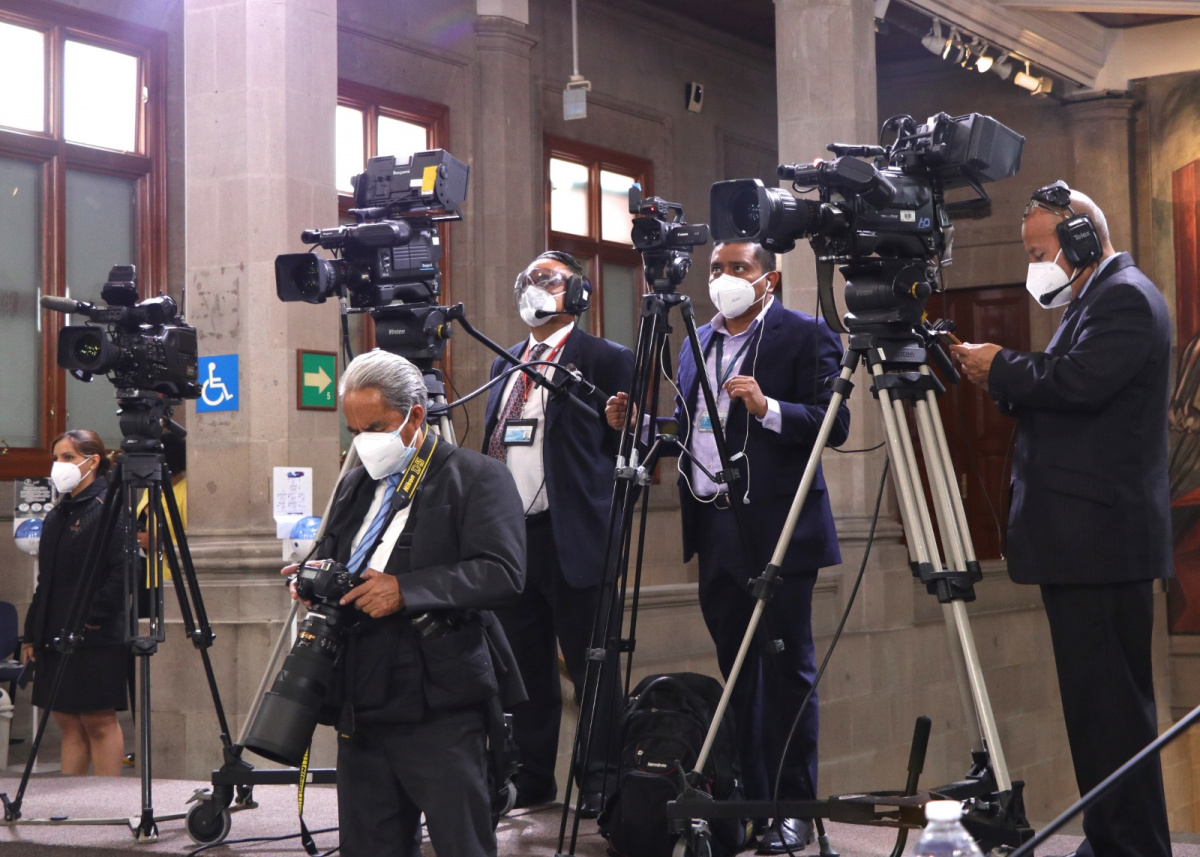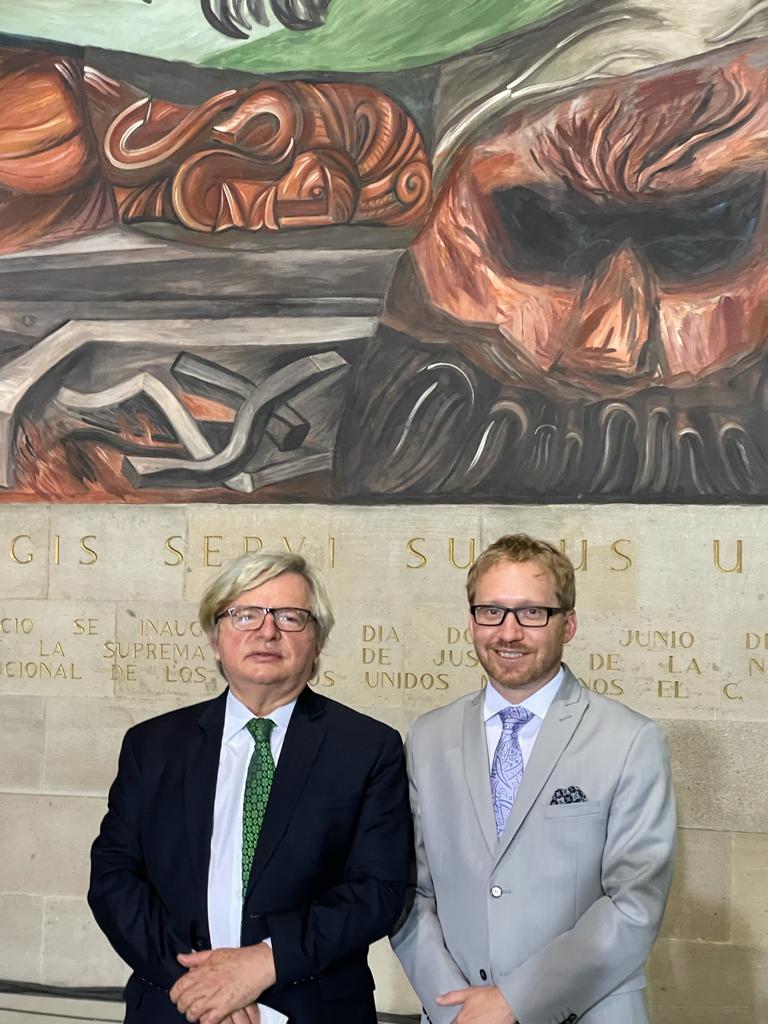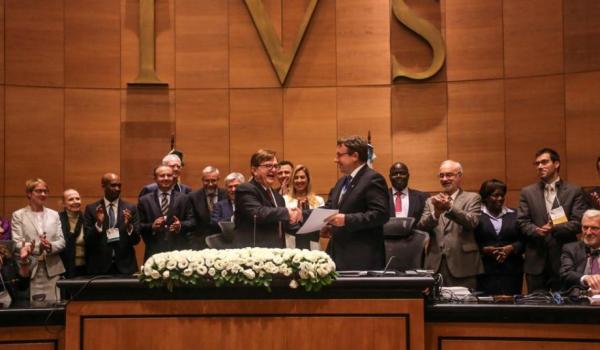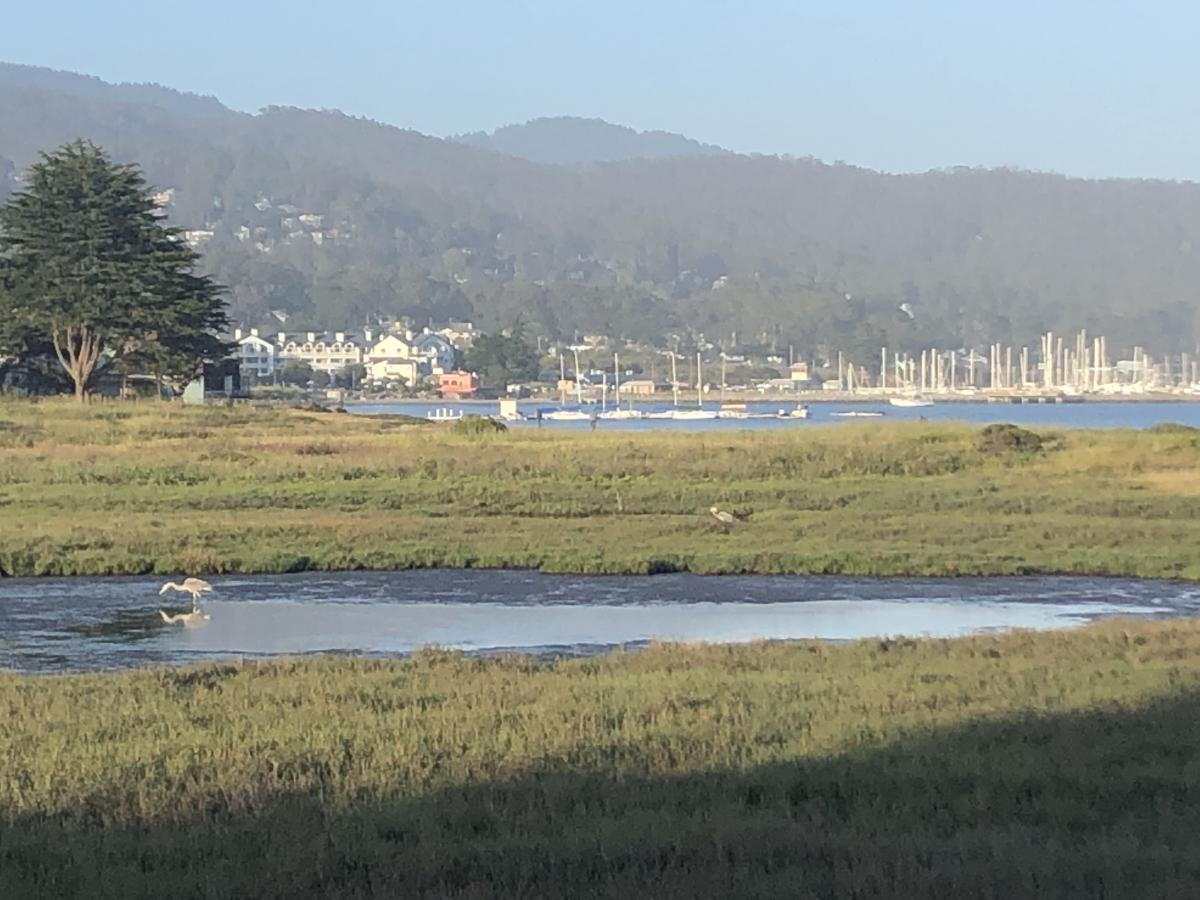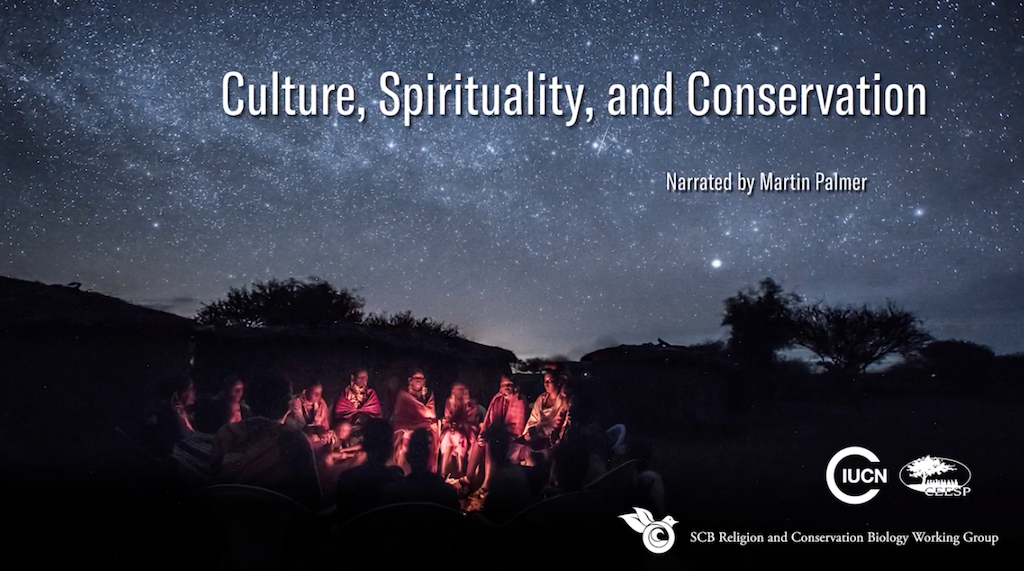WCEL Hosts Inter-American Environmental Law Congress
By WCEL Deputy Chair Nicholas Bryner - On Thursday, July 8, and Friday, July 9, participants from around the world gathered in Mexico City and online for the Inter-American Environmental Law Congress, organized by the IUCN World Commission on Environmental Law (WCEL) in collaboration with the United Nations Environment Programme (UNEP) and hosted by the Supreme Court of Justice of Mexico (Suprema Corte de Justicia de la Nación). The event, with over 50 speakers and hundreds of participants representing the Americas and the world, was WCEL’s first major “hybrid” event and the first regional congress held as part of the 2nd IUCN World Environmental Law Congress.
The overall theme for the 2nd IUCN World Environmental Law Congress is A Critical Decade for Environmental Law. In the year 2021, the world faces grave and complex environmental crises, including accelerated changes in global and local climates and rapid loss of biodiversity. Over the next decade, effective environmental law at local, national, regional, and international levels will be essential to shape and promote societal responses at the scale needed to meet these global crises.
At the Inter-American Environmental Law Congress, speakers and participants addressed the overall global theme as well as the Congress’ regional theme: Biodiversity and Law. The first day of the Congress included a high-level opening ceremony with welcoming remarks from Justice Alfredo Gutiérrez Ortiz Mena of the Supreme Court of Mexico, IUCN Director General Bruno Oberle, and representatives from UNEP and WCEL. Keynote speakers and two high-level roundtable panels—including speakers present in Mexico City as well as online—discussed the Congress theme, general trends and challenges in environmental law in the Americas, and the subject of legal protection for environmental defenders.
During the second day, additional keynote speakers expounded on the protection of human rights and environmental rights. Three additional high-level roundtables addressed perspectives on environmental adjudication and capacity building, the development of biodiversity law in national legal regimes and under the Convention on Biological Diversity, and the role of administrative government in developing and implementing environmental law. Following closing keynote presentations, IUCN President Zhang Xinsheng, Justice Gutiérrez, and representatives of IUCN and WCEL concluded the Congress.
At the Congress, WCEL presented a new award—the Nicholas Robinson Award for Excellence in Environmental Law—to two inaugural recipients: Professor David Hunter of American University’s Washington College of Law and Justice Eládio Lecey of the Supreme Court of the State of Rio Grande do Sul in Brazil. Both were honored by WCEL Chair Antonio Benjamin, former Deputy Chair Denise Antolini, and CEC Chair Sean Southey for dedicated careers toward advancing the environmental rule of law.
Outcomes:
The participants and speakers in the Congress focused on three key messages, which can serve as a starting point for thinking about how to advance environmental law in this critical decade of the 2020s. As part of the series of regional events under the umbrella of the 2nd World Environmental Law Congress, the Inter-American Congress provides a first step toward an agenda for implementing the IUCN World Declaration on Environmental Rule of Law and for using environmental law as a response to the crises of biodiversity loss and climate change. These three key messages are as follows:
-
Use law to protect and guarantee the safety and human rights of those who work to protect the environment—the environmental defenders. More environmental defenders are killed each year in the Americas than in any other part of the world. Vulnerable communities that live in or near threatened ecosystems, although they have contributed little if anything to drive the destruction of biodiversity and the changing climate, continue to suffer negative impacts from violence and conflict around the ownership, use, and management of natural resources.
-
Communicate the urgency of addressing climate change and its impacts on human health and biodiversity around the world. The past decade has been the hottest on historical record. Every effort to mitigate the causes of present and future climate change is necessary, and environmental law at domestic and international levels must be reformed and used to reflect the severity of the risk that climate change poses to humans and to the planet.
-
Develop legal systems around a “One Health” framework approach. In the face of the covid-19 pandemic, environmental law must be developed and applied in a way that recognizes the connection between threats to biodiversity—overuse, extinctions, and increased human-animal interactions—and the outbreak of new and dangerous diseases.
In addition to these three overarching messages, within the theme of A Critical Decade for Environmental Law, the Congress participants note that many of today’s environmental problems do not stem from a lack of written laws, norms, and regulations. Over the past 50 years, many countries around the world have developed robust legal frameworks. However, as WCEL, UNEP, and other stakeholders have long emphasized, environmental law cannot be effective in bringing about beneficial change without effective and equitable compliance and enforcement. The world needs an agenda for strengthening environmental compliance and enforcement in accordance with the rule of law in environmental matters.
After the success of gathering experts and stakeholders on environmental law in the Americas, WCEL and other partners will continue to build on these themes during the next two regional events in July in Oceania and in Africa—all part of the 2nd World Environmental Law Congress that will raise the level of discussion about how to approach law during this critical decade.
